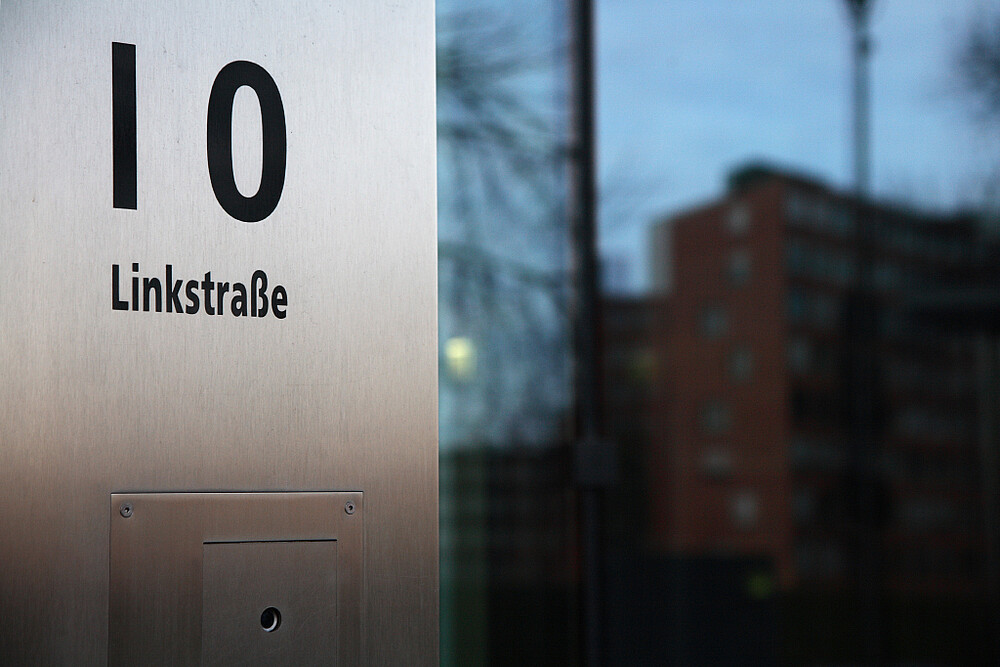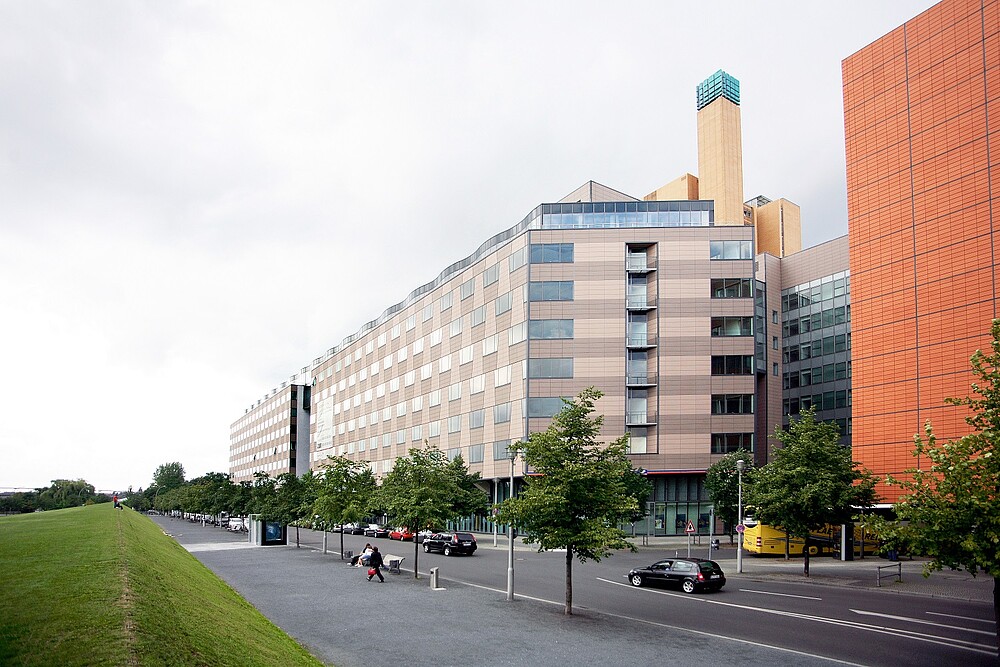Germany's center for research and healthcare
Interview with Peter Albiez about the relocation to Berlin, the capital's special spirit and the key role of startups and big data.

Biologist Peter Albiez started his career at Pfizer in 1996 as a pharmaceuticals consultant. Following management positions in sales and marketing, he took over the management of Pfizer's sales organization in 2006. In 2009, he was appointed managing director and head of Pfizer's primary care business unit. In March 2015, he was named Country Manager of Pfizer Germany. He has also headed the internal medicine business unit in Germany since August 2016. Peter Albiez is married and the father of two daughters.
Berlin is not just a stronghold for research, but also "the place to be," both politically and socially.
Ten years ago, Pfizer moved its German headquarters from Karlsruhe to Berlin. Was the change worth it for Pfizer?
Absolutely. We wanted to be at Germany's center for research, development, healthcare, and healthcare policy in order to get involved and also learn from others. The move has changed us and accelerated a transformation that was going to happen anyway. We have evolved as a company and become more diverse, international, and agile. Today, Berlin is an international location for us that concentrates on Germany, but is also home to regional teams. For example, we manage our oncology division, active in more than 50 countries, from here in Berlin. We have thus become a prominent and important location on our group's global radar. Berlin is associated with a special spirit, and not just in the US. We welcome colleagues from other countries almost every day. I am very satisfied with this development. We have come to know and appreciate many new perspectives here in recent years. This has enriched us.

But new perspectives alone were not the only reason for the move, were they?
No, the proximity to the cutting-edge research for which the region is known was also decisive. We now have many links to renowned centers such as the Charité and the Max Delbrück Center. However, Berlin is not just a stronghold for research, but also "the place to be," both politically and socially. We have intensified many contacts, are holding talks on the future of the health care system, and are very actively involved in the city as a corporate citizen.
Do start-ups also play a role for Pfizer?
Absolutely. The start-up landscape in Berlin has seen impressive growth. The city can absolutely compete internationally. This environment also led us to be the first Pfizer location to launch the Healthcare Hub, a platform for cooperating with start-ups. Pfizer now has ten such hubs based on the Berlin model. We are proud of that.
Pfizer Germany’s headquarters at Potsdamer Platz is one of the largest in Europe. How many people work for Pfizer here in Berlin? What do they do and what qualifications do they have?
The German headquarters in Berlin has almost 1,300 employees, about half of whom work in outside sales. About 650 employees work at Potsdamer Platz, including many physicians, biologists, and pharmacists. Their tasks are very diverse because we manage all of Pfizer's business on the German market from here. We departments such as legal, human resources, marketing, communications, drug safety, demand management, and regulatory affairs. We have been received the "Great Place to Work" award. Our employees are very important to us. There are sports facilities, flexible working hours, and room to maneuver. That goes down very well. Our annual employee survey reinforces this perception.

In the HealthCapital Berlin-Brandenburg cluster, you are an ambassador for issues related to big data in clinical studies and health care research. What does big data offer?
Fewer misgivings, more courage to move forward! Digitalization is opening up entirely new opportunities for identifying and treating diseases. Data is key. Using it sensibly can help to find new therapies or further improve existing ones. The right added value is created when a wide variety of patient and care data is available and can be evaluated. Trust centers could take over the task of managing the data and make it available for research according to patient wishes. With the help of information technology, we can advance medical research and improve care. These are the big promises. Of course, data protection must be guaranteed. We all have an inalienable right to privacy. However, this must not block us from looking for future opportunities. In medicine, data is a treasure that can lead to better health. Digitalization can and must serve people, not the other way round. In this sense, it is essential to move forward with courage and shape the digital future of medicine to make everybody's lives better.

Original Interview conducted for Health Capital Berlin Brandenburg
Images: Pfizer Deutschland GmbH





